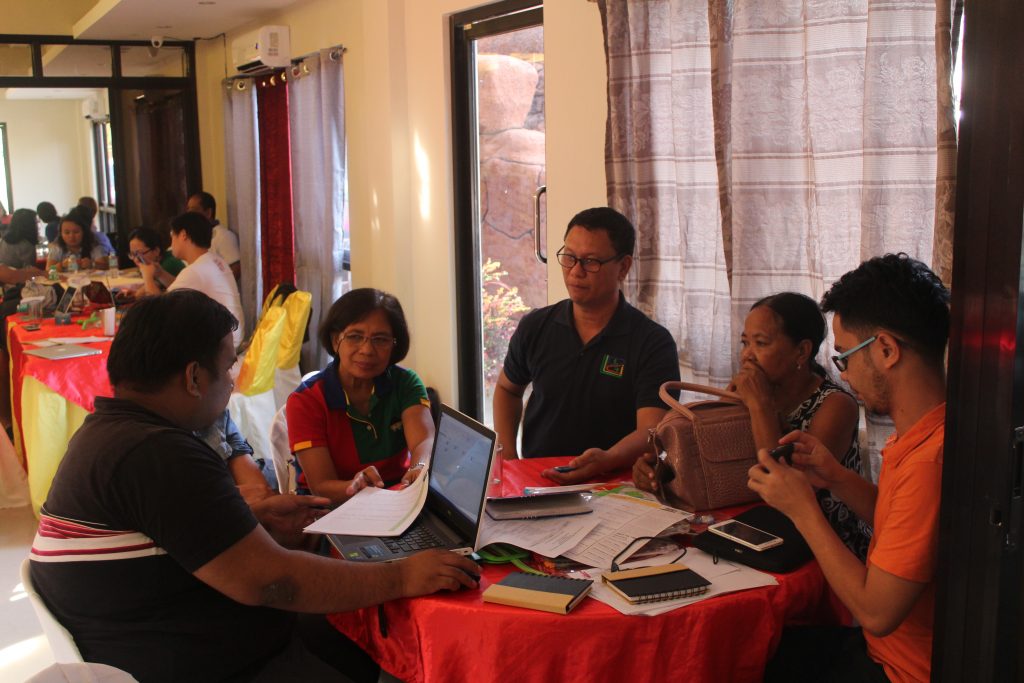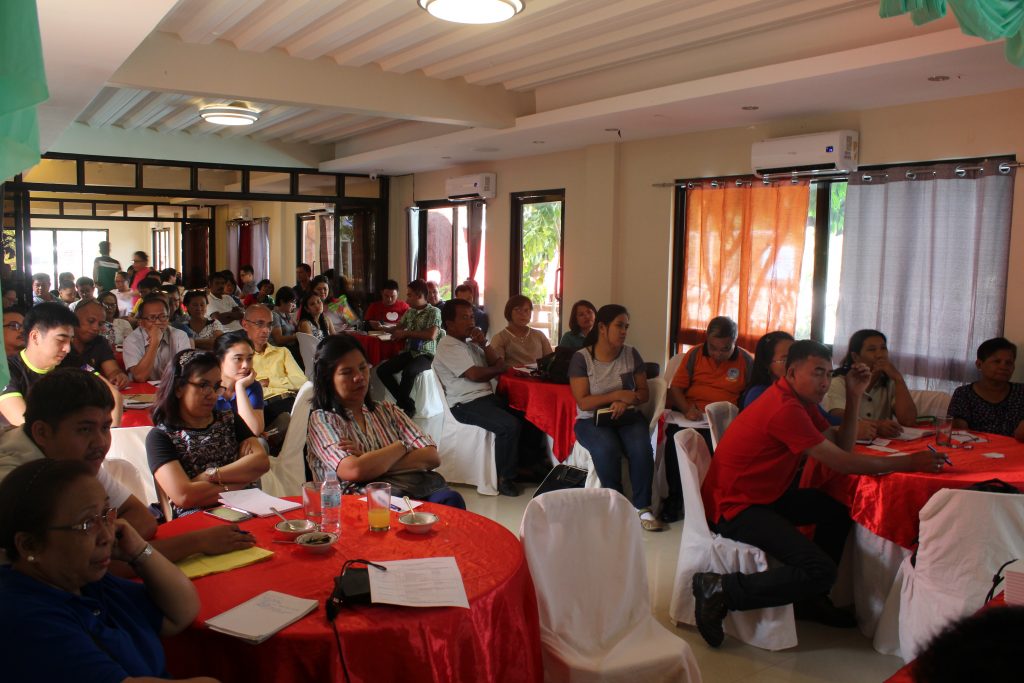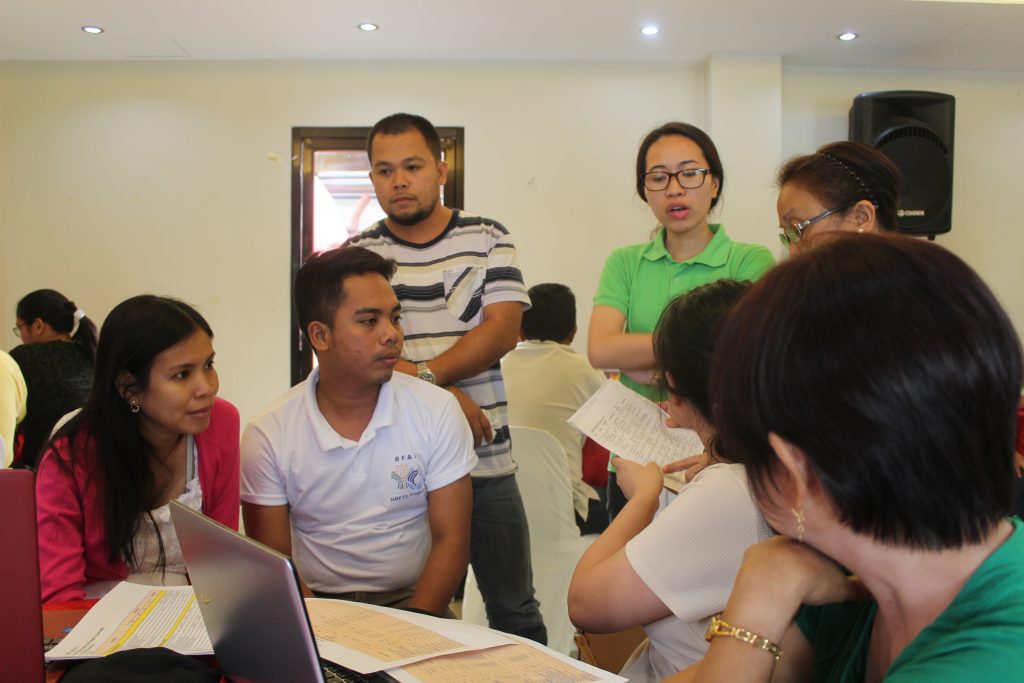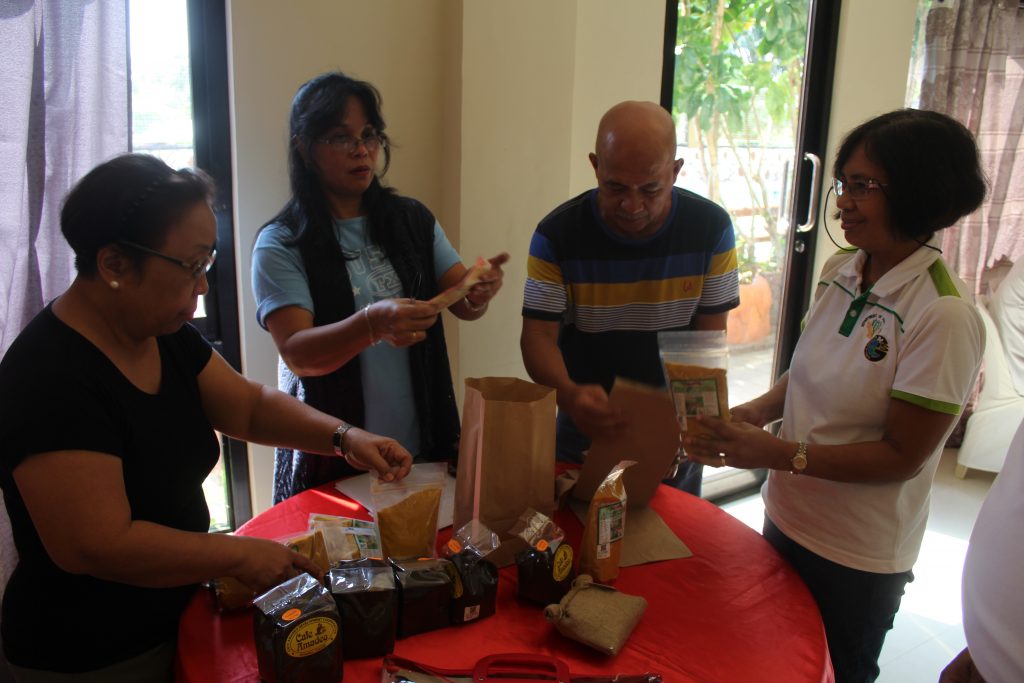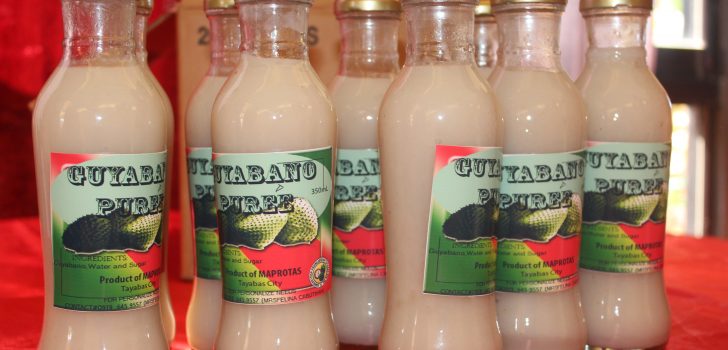 MAPROTAS of Tayabas City, Quezon aims to uplift its members through guyabano puree processing sub-project.
MAPROTAS of Tayabas City, Quezon aims to uplift its members through guyabano puree processing sub-project. CALABARZON speeds up I-REAP implementation
Nagkakaisang Samahan ng Magniniyog ng Maragondon, Tanauan, at Tignoan (NASAMMATTIG), a farmers’ association in Real, Quezon aims to organize coconut producers in the municipality in order to maximize their marketability. To ensure that they have continuous income whenever a pest infestation (e.g., cocolisap) or calamity happen (e.g., Typhoon Lando), the group is practicing multi-commodity farming system. One of the commodities they believe will be sustainable in the long run is quail egg production.
The quail is a small bird which produces small and oval shaped egg with speckled outer shell ranging in color from dark brown to blue to white. Even with their small size, their nutritional value is three to four times greater than the chicken eggs like protein content, Vitamin B1, iron, and potassium. Overall, quail eggs can help you have strong immune system, cure diseases, and serve as natural detoxifier that can make you look young and healthy.
Anacorita Manalo, NASAMMATTIG president, believes that with continuous egg production of the quails and the large demand of the eggs in Real and neighboring municipalities as far as Laguna, it will have a good impact to farmer beneficiaries and will be an opportunity for them to have an additional source of income specially when coconut production is slow.
To help them kick start their business venture, the association partnered with the municipal government and passed a proposal to the Department of Agriculture’s Philippine Rural Development Project (PRDP) under its Enterprise Development (I-REAP) component.
Their P378,510.00-worth of subproject received its Regional Project Advisory Board (RPAB) endorsement last April 20, 2016. With further refinement, it received the No Objection Letter (NOL) 1 on September 6, 2016. They will now be able to undergo procurement process.
To help NASAMMATTIG and the municipal government in this particular stage, the PRDP I-REAP team conducted a workshop on finance, compliance, and procurement activities last September in Lucena City. Aside from them, other proponent groups from Cavite, Laguna, and Quezon also participated in the said activity.
According to Teofista Garcia, I-REAP regional component head, this activity will ensure that those with NOL1 already will be properly equipped in handling the bidding process using the PRDP guidelines while those without NOL1 be prepared when they will receive it.
“There are some difference during the bidding and awarding stages following the RA 9184 and those we utilize in PRDP. While the regular bidding goes to lowest bidder, in PRDP, the contract goes to the lowest most responsive bidder,” she also said. This will ensure that while the cost is cheaper, the quality will not suffer.
Speakers from the Project Support Office South Luzon Cluster helped the participants to understand better the processes of PRDP. Joel N. Angeles, Budget Officer, discussed the budgetary requirements; King Eliser Papango, Procurement Officer, talked about the procurement procedures; and Michael Gregory Vargas, Compliance Officer and OIC Procurement Head, presented the documents needed for compliance while Jose C. Ledda III, Legal Officer, discussed the details. Likewise, the I-REAP regional team helped the groups draft required documents like Working Financial Plan, Memorandum of Agreement, Implementation Management Agreement, and Enterprise Agreement
For NASAMMATTIG, the money they will get from the Project will be used to buy 3,000 quails, and its feeds and veterinary drugs and biologics as well as marketing materials. Meanwhile, the proponent group will shoulder the housing and labor cost to be incurred when the project starts.
The 18 current I-REAP subprojects is worth P123.84-Million endeavor; bulk of which are due to three regular subprojects (Coffee in Cavite, Corn Silage in Laguna, and VCO in Quezon) worth P109.08-Million. The remaining 15 subprojects worth P14.76-Million are microenterprises offered to localities affected by natural disasters.
PRDP is a six-year project designed to impact the rural communities nationwide by investing in a modern, inclusive, value-chain oriented and climate-smart agri-fishery sector. ### (Lawrence Albert Bariring, DA-PRDP RPCO 4A InfoACE Unit)

